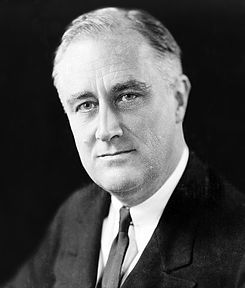Code Pink founder and human rights activist Medea Benjamin was inexplicably detained by Egyptian authorities at the Cairo Airport. The police handcuffed and beat her after removing her to a detention area sustaining a dislocated shoulder and broken arm. The US Embassy was notified of her detention but never arrived to assist her. After being held for several hours, she was put on a plane to Turkey.
On the night of March 3, 2014, co-founder of the peace group CODEPINK Medea Benjamin was on her way to Egypt to join an international delegation of women going to Gaza when she was detained by border police in the Cairo airport, held overnight in a cell, and then brutally tackled (her arm badly injured), handcuffed, and deported to Turkey. During her time in the detention cell she had access to a cell phone, from which she contacted colleagues at CODEPINK about the poor conditions of the cell and chronicled her ordeal via Twitter. When the Egyptian police removed her from the detention center, they used such excessive force she sustained a fracture and torn ligament in her shoulder. [..]
She is currently in Istanbul, Turkey, receiving medical attention at a hospital before she returns to the US. It is still unclear why the Egyptians deported her. Medea’s colleagues at CODEPINK are appalled by the unnecessary use of force by Egyptian authorities.
This morning Ms. Benjamin spoke with Democracy Now!‘s Amy Goodman.
AMY GOODMAN: We turn now to U.S. peace activist Medea Benjamin, who was just detained at Cairo’s airport by Egyptian police. She was in Cairo to meet up with an international delegation before traveling to Gaza for a women’s conference, but she said she was detained upon arrival and held overnight before being deported to Turkey, where she’s now seeking medical treatment. Medea Benjamin joins us on the phone from Turkey.
Medea, how are you?
MEDEA BENJAMIN: Well, I’m in a lot of pain. I’ve gotten two shots of painkiller, but it’s not enough. They fractured my arm, dislocated my shoulder, tore the ligaments. They jumped on top of me. And this was all never telling me what was the problem. And so, it was a very brutal attack, and I’m in a lot of pain.
AMY GOODMAN: Explain what happened. You arrived at Cairo’s airport, and you were attacked there?
MEDEA BENJAMIN: No, I arrived at the airport. When I gave in my passport, I was taken aside, brought into a separate room, where I was held for seven hours without anybody ever telling me what was wrong. Then I was put into a jail cell in the airport, held overnight. And in the morning, five very scary-looking men came in and wanted to take me away. And I said, “The embassy is coming. The embassy is coming.” They were supposed to have arrived. Instead, they dragged me out, tackled me to the ground, jumped on me, handcuffed my wrists so tight that they started bleeding, and then dislocated my shoulder, and then kept me like that, grabbing my arm. The whole way, I was shouting through the airport, screaming in pain. Then the-I demanded to get medical attention. The Egyptian doctors came and said, “This woman cannot travel. She’s in too much pain. She needs to go to the hospital.” The Egyptian security refused to take me to a hospital and threw me on the plane. Thank God there was an orthopedic surgeon on the plane who gave me another shot and put the arm back in its shoulder. But they were so brutal, and, as I said, Amy, never saying why.
AMY GOODMAN: Did the U.S. embassy representative ever come to see you at the airport?
MEDEA BENJAMIN: No. Some of the delegates, including Ann Wright, who had already arrived for the Gaza delegation, had been calling the embassy non-stop. The CodePink people in D.C. were calling the embassy non-stop. They were always saying, “They’re supposed to show up. They’re supposed to show up.” They never showed up. I was on the tarmac. The Turkish airline was forced to take me, but we delayed an hour while they were debating what to do. There were about 20 men there. And the embassy never showed up the entire time.
The full transcript can be read here
Just where was the State Department? Why didn’t they arrive to assist her? They owe Ms. Benjamin an explanation.

 In this day in 1933, at the height of the Great Depression,
In this day in 1933, at the height of the Great Depression,
Recent Comments